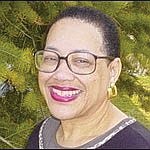Calling for a groundswell
Columnists
Charlene Crowell | 8/16/2019, 6 a.m.
How, in a span of only 24 hours, could two cities in different states and regions suffer mass shootings — one in El Paso, Texas, a city only a few miles from the nation’s southern border, and the other in Dayton, Ohio, a former midwestern manufacturing hub?
Despite the shock of the two un-provoked attacks, family and community members in both cities must somehow cope through their grief while making funeral arrangements. These two communities are also challenging governmental officials at both the state and federal levels to take actions to prevent further fatalities.
Nationally, a profusion of prayers and condolences signaled that a tragic moment might yet be transformed into a groundswell movement that reckons with the American conscience. The profusion of assault weapons combined with easy access is a gripping issue that confronts us all.
In response to these and other tragedies, a diverse coalition of leaders held a rally Aug. 6 in the nation’s capital. In a joint statement, the Leadership Conference for Civil and Human Rights was joined by key partners, including the NAACP Legal Defense Fund, Voto Latino, the Center for Community Self-Help and the Center for Responsible Lending.
“None of this is acceptable,” said the leaders in a written statement. “None of this is normal. Our organizations are united in saying that members of Congress can no longer look away as com- munities of color are murdered with impunity. We must all unite and demand accountability.”
The NAACP and the National Urban League additionally called for the passage of the bipartisan Background Checks Act of 2019. Passed in the U.S. House of Representatives on a bipartisan vote of 240-190 on Feb. 27, the bill has yet to be taken up by the U.S. Senate. The bill addresses background check requirements for firearms purchases and firearm transfers between private individuals.
Now is also a time to remember that regardless of race or ethnicity, our history chronicles the range of hate crimes that have taken the lives of Latinos as well as Native Americans, black people, Jews and the LGBTQ community. The terror now facing America’s Latinos resurrects these horrors, particularly how black people encountered racial hatred for more than a century during Jim Crow era and later during the civil rights struggles of the 1950s and 1960s.
Too many times in recent years, we remain at risk as a people. In 1998, the body of James Byrd, a 49-year-old black man in Jasper, Texas, was ripped to pieces as it was dragged more than a mile and a half by white people driving a pickup truck. More recent heinous hate crimes include the deaths of Trayvon Martin, Michael Brown, Eric Garner, and Tamir Rice — just to name a few.
According to Rutgers University, black men today are 2.5 times more likely than white men to be victims of violence. From 2013 to 2017, 11,456 fatal encounters with police and members of the public were reported.
At the same time, the emergence of hate groups has been on the rise, according to the Southern Poverty Law Center. The SPLC’s Hate Map by State shows that the largest numbers of hate groups are located in California (83), Florida (75) and Texas (73). Hate groups also can be found in 45 other states and in more metropolitan areas such as Atlanta, Chicago, New York City, Sacramento, Philadelphia and Pittsburgh.
Just as the assassination of Dr. Martin Luther King Jr. prompted the enactment of major civil rights legislation, now is the time for our nation to stand up to the many forms of domestic terrorism that plague the nation. People of conscience and principle have a duty to stand up and speak out for the fullness of our “inalienable rights.”
The writer is deputy communications director of the Center for Responsible Lending.







